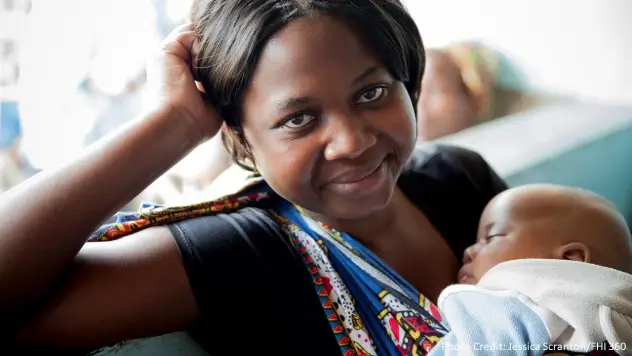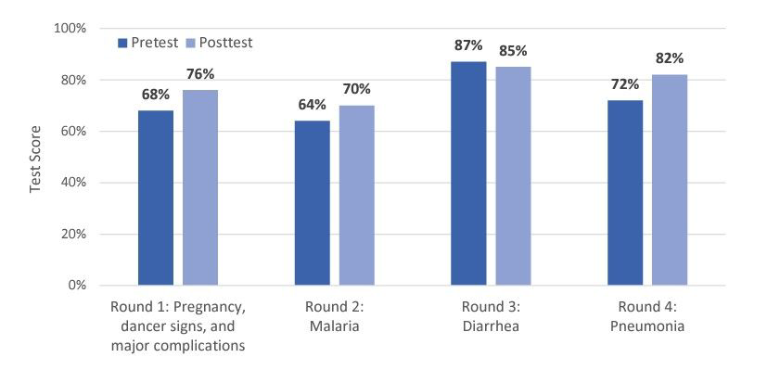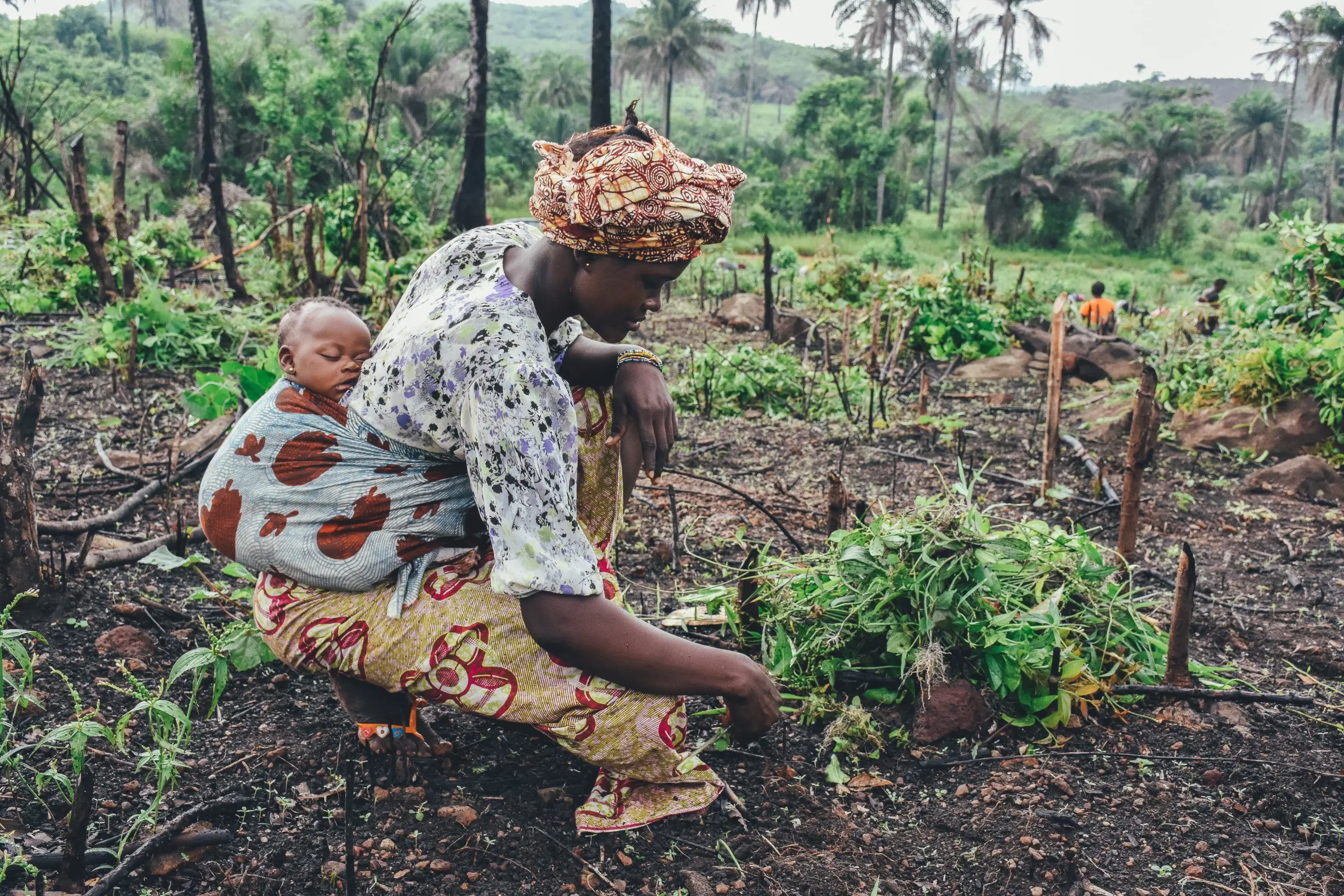
Picture credit: FHI360
”I didn't know how to identify some diseases. [The Digital Training] gave me knowledge to identify maternal and child health-related issues. Before, I used to resort to traditional treatments only. Now, I advise the community members to go to the health units.
Novas EduardoCommunity Health Worker in Nacala Porto District

Digital Training knowledge retention among community health workers, Nov. 2020–Sept. 2021
The project which will run for five years (April 2019‒ March 2024) is helping the Mozambican health system deploy evidence-based quality improvement approaches and accurate data to identify problems and implement digital solutions that improve health.
Read the full case study here.




